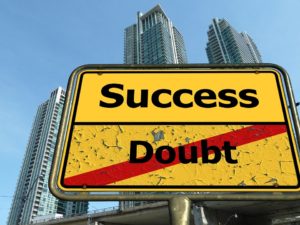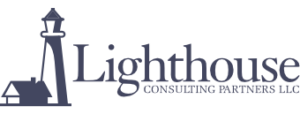How to Pick a Strategic Planner and Use In-Depth Work Style Assessments to Improve Planning Performance
By Dana Borowka
Scott Adams, the creator of the cartoon Dilbert, has lampooned strategic planning for years.
“I’m putting you on the strategic planning team,” announces Dilbert’s boss. “It’s like work, but without the satisfaction of accomplishing anything.”
There is a grain of truth in Dilbert, because strategic planning can fall short without the right facilitator and approach.![]()
“Planning is simply not that hard; but finding a great consultant who can help you get a great plan written, and implemented, is critical,” says Steven Phillips.
Phillips has built an enviable reputation for his strategic planning. He is a sought-after speaker for conferences and organizations worldwide. He has solid advice on how to choose the right strategic planner.
“Too many times consultants will lock themselves up, do amazing analysis, offer up a plan, and then it sits on a shelf and never gets implemented,” says Phillips. “The secret to getting the plan implemented is to take a high involvement approach with the senior team while creating the plan. Consequently, hiring a consultant who will be seen by your senior team as credible and likeable is very, very important.”
Some consultants say it is critical the strategic planner you hire should know the industry.
“Choose a strategic planning resource that knows your industry and is willing to understand how your existing capabilities are or are not capable of achieving the strategy,” says Paul David Walker, a strategic planner with specialized expertise in many industries.
“If they produce the ideal strategy vs. one that works for your existing talent, then the plan will just gather dust,” adds Walker.
Beyond the Standard Screening Criteria
The standard screening criteria when selecting a strategic planning consultant is experience, results, references, and chemistry/fit.
Barri Carian, a former senior executive for two Fortune 500 companies who has been a partner or in the embryonic stages of three start-up companies, is a strategic planning consultant who believes in today’s fast paced and disruptive world there are two additional areas companies should pay attention to in their selection.
“The first is can the strategic planning consultant take us through a deep dive into the trends that will impact our future success?” she asks. “This includes societal (demographic and psychographic), industry and technology trends. Strategic plans that do not take these trends into consideration will not serve the company well.”
For examples of those who didn’t take trends into account think Blockbuster, the music industry, the taxi companies, and Kodak.
![]() “Second, the plan must be executable.,” adds Carian. “So often, strategic plans sit on a shelf never to be referenced again. Or they are so lofty, it’s overwhelming and companies don’t know where to start. Can the strategic planning consultant help you operationalize the plan? That means prioritizing initiatives, assigning owners or champions, breaking large strategic initiatives into smaller bites and developing systems to track progress and removing obstacles.”
“Second, the plan must be executable.,” adds Carian. “So often, strategic plans sit on a shelf never to be referenced again. Or they are so lofty, it’s overwhelming and companies don’t know where to start. Can the strategic planning consultant help you operationalize the plan? That means prioritizing initiatives, assigning owners or champions, breaking large strategic initiatives into smaller bites and developing systems to track progress and removing obstacles.”
The challenge, says strategic planning consultant Marc Emmer, is that a lot of consultants are generalists. Many are very good facilitators, and they may or may not be true strategists.
“If you really want a formal, strategic plan based on research, it may be worth your while to hire a strategic planning firm, that has the resources to run a true strategy process,” says Emmer. “The first thing you should ask potential consultants is how many strategic plans have they written? How companies have they facilitated strategic planning meetings for? If they have done ten or twenty you might wonder if they have enough experience to help you.”
If they have many practice areas such as leadership or process improvement, you should consider if they are focused enough on strategy to be any good at it, advises Emmer.
“Finally, ask to see the tools and processes that they will use to ensure your team has an actionable plan that can drive competitive advantage,” adds Emmer, who recently published his second book, Momentum: How Companies Decide What To Do Next.
“People who understand strategic planning and do it well view it as central to their evolution of a company and the source of competitive advantage,” adds Emmer.
Insight Leads to Better Strategic Planning Team Performance
After a strategic planning consultant is selected, in-depth work style and personality testing can be a valuable resource for the strategic planning process. The true value of any assessment comes in using the insights it provides. Personality assessments lend objectivity to decisions that may otherwise be largely subjective.
Here are five ways to use in-depth work style and personality testing for strategic planning:
1. Get the real picture when choosing strategic planning team members. Naturally all candidates for your strategic planning team want to put their best foot forward. However, through an in-depth work style and personality test, you can uncover a great deal about their ability to work well with other personalities, their problem-solving abilities, their thought processes and their ability to tolerate stress. This testing gives you objective information that can help you make an informed decision about whether these candidates would be good fit for the strategic planning team.
2. Help team members be all that they can be. Everyone has strengths and weaknesses. Find out the real truth with an objective measure. Once you pinpoint the good and the bad, then you place them in the right positions and coach them on where to improve.
3. Treat team members the way they want to be treated. In today’s fast-paced world of business there is little time to get to know many of your coworkers. Using in-depth work style personality assessments as the basis for team building exercises can quickly get everyone to have a healthier respect for other ways of seeing the world.
4. Make strategic planning leaders better team leaders. When team leaders understand what makes their people tick, then they can be better leaders. Knowing the work style and personality traits can help with stressful planning sessions.
5. Set up strategic planning teams for success. Sometimes we hire the right employee and then give that person the wrong job. Understanding preferred work styles and where a person would be happiest goes a long way to improving retention and productivity.
A proper test should reach beyond simple profiles and decipher an employee’s underlying needs. This is key for team building, conflict resolution, and succession planning. Some tests only use five or eight traits to make an assessment; this is not enough. We recommend a test that utilizes the full sixteen traits to get a complete picture of the person.
A final thought: once you have used assessments to pick the right team, it might be a shame to use them only once a year.
“My view of so-called strategic planning is that today it is less an event and more an ongoing conversation,” says Larry Cassidy, a group chair with Vistage International for 30 years. “The most effective organizations are evolving, and for me that moves viable strategic thinking away from being an annual event and toward an ongoing conversation.”
Robert Scherer, president of TAG, an outsourced accounting and software solutions firm, believes that in order to maximize the likelihood of executing a strategic plan that attention to detail and follow-up are critical.
“Over the years, TAG has worked with many companies in various stages of their strategic plan, with many attempts to accomplish too much in one year,” Scherer said. “With planning it’s better to break down goals into shorter sprints, as it puts more urgency and focus on your goals, which defaults to a more agile approach.”
Trends to Take Into Account for Strategic Planning
Before his consulting career, Marc Emmer spent over 20 years in the food business, in operations, marketing and business development. Emmer, who writes regularly for Inc. magazine, offers these trends to take into account in your strategic planning:
• Get great tax planning advice now.
• Have a nimble strategic plan, that can change on a moment’s notice. Review it quarterly to ensure you are in a position to seize the opportunities ahead.
• Invest in technology. Ask of your management team, how is technology a strategic advantage? If your team doesn’t have the chops to answer the question, find the people who do. Weave technology into your strategic plan.
• Hire people before you need them. If the economy continues to heat up, and unemployment levels off at 4 percent or so, it’s going to be nearly impossible to find talent.
• Be a best-in-class employer and push the envelope on providing a flexible work environment (including virtual office space).
• Utilize collaboration tools that allow you to provide your team the ability to be effective, in any location at any time.
• Execute flawlessly. Given the rate of change, customers expect on-time delivery, great quality and seamless communication. Utilize agile principles to ensure your team can pivot quickly to meet evolving customer demands.
Permission is needed from Lighthouse Consulting Services, LLC to reproduce any portion provided in this article. © 2020
Dana Borowka, MA, CEO of Lighthouse Consulting Services, LLC and his organization constantly remain focused on their mission statement – “To bring effective insight to your organization”. They do this through the use of in-depth work style assessments to raise the hiring bar so companies select the right people to reduce hiring and management errors. LCS can test in 19 different languages, provide domestic and international interpersonal coaching and offer a variety of workshops – team building, interpersonal communication and stress management. Dana has over 25 years of business consulting experience and is a nationally renowned speaker, radio and TV personality on many topics. He is the co-author of the books, “Cracking the Personality Code”, “Cracking the Business Code” and “Cracking the High-Performance Team Code”. To order the books, please visit www.lighthouseconsulting.com.
If you would like additional information on this topic or others, please contact your Human Resources department or Lighthouse Consulting Services LLC, Santa Monica, CA, (310) 453-6556, dana@lighthouseconsulting.com & our website: www.lighthouseconsulting.com.
Lighthouse Consulting Services, LLC provides a variety of services, including in-depth work style assessments for new hires & staff development. LCS can test in 19 different languages, provide domestic and international interpersonal coaching and offer a variety of workshops – team building, interpersonal communication and stress management.
Our Sino-Am Leadership Program helps executives excel when stationed outside their home country. American managers in Asia and Asian managers in America face considerable business, personal, and leadership challenges because of the cultural differences. This unique program provides personal, one-on-one coaching. For more information visit, https://lighthouseconsulting.com/performance-management/talent-development/sino-american-management-style/.
We also have an affiliate in the UK who covers all of Europe so we are now a true multi-national company that can support our clients globally.


